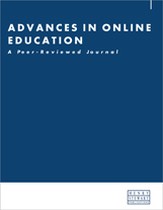Increase in AI-generated text in higher education dissertations from 2020 to 2025 : Implications for academic integrity
Abstract
The proliferation of generative artificial intelligence (AI) tools, such as GPT-3 and ChatGPT, has raised concerns about academic integrity in higher education, as uncited AI-generated text may constitute plagiarism. This quantitative trend analysis examined 40 open-access doctoral dissertations from 2020 to 2025 to quantify the increase in AI-generated text and its implications for academic integrity. Using Spearman correlation and linear regression, the study found a significant increase in AI use (ρ = 0.91, p < 0.001), rising from 2.3 per cent in 2020 to 20.4 per cent in 2025, with a 4.3 per cent annual increase (R2 = 0.77). Education and science, technology, engineering, and mathematics (STEM) disciplines showed higher AI use (19.8 per cent and 18.3 per cent in 2024–2025) than humanities and social sciences (12.8 per cent and 15.5 per cent). These findings underscore the need for AI detection tools and ethical guidelines to address plagiarism risks, offering evidence for segment-specific policy development in academic institutions.
The full article is available to subscribers to this journal (subscription is free).
Author's Biography
David Ison Dr David Ison is a distinguished expert in academic integrity and higher education research, with more than three decades’ experience spanning aviation and academia. He holds a PhD in Higher Education Leadership with a specialisation in Aviation Higher Education from the University of Nebraska–Lincoln. David’s career includes service as an airline pilot, aviation professor and doctoral research faculty member at several leading universities, where he taught graduate research design and academic writing courses, emphasising best practices in scholarly ethics and academic integrity. His research has focused on the prevalence and detection of plagiarism, cultural differences in academic integrity frameworks and, more recently, the implications of generative AI (GenAI) in scholarly writing. He has authored numerous peer-reviewed journal articles, five academic books and has been featured in prominent media outlets including CNN, NPR and Time Magazine. David’s work reflects a commitment to preserving the quality and originality of scholarship in an evolving digital landscape, with particular attention to the ethical challenges posed by new technologies such as large language models (LLMs) and artificial intelligence (AI) writing assistants.
Citation
Ison, David (2025, September 1). Increase in AI-generated text in higher education dissertations from 2020 to 2025 : Implications for academic integrity. In the Advances in Online Education: A Peer-Reviewed Journal, Volume 4, Issue 1. https://doi.org/10.69554/NZEA7835.Publications LLP
